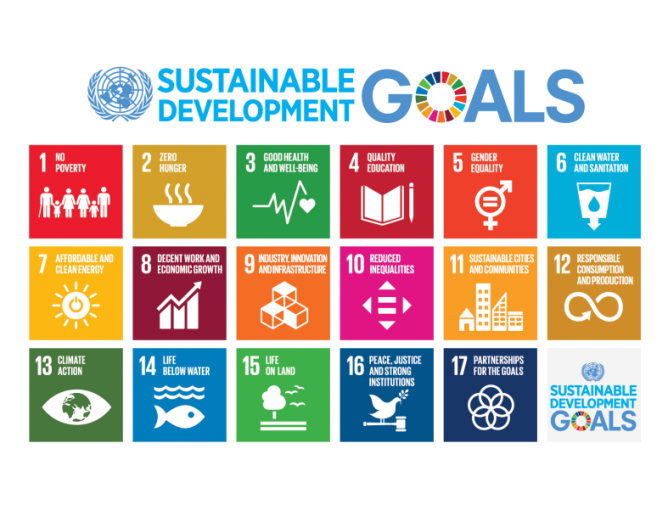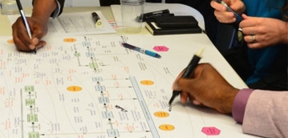This is Part 2 of the blog post “Connecting Solutions Across Sectors and Communities,” by Fred Brown, The Forbes Funds, President & CEO; Debra Erenberg, Cancer Free Economy Network, Strategic Director; and Ruth Rominger, Garfield Foundation, Director, Collaborative Networks Program, posted on Aug. 8, 2018.
The City of Pittsburgh is transforming from a Rust Belt to a Brain Belt. Pittsburgh is now one of two cities in the U.S. focused on becoming a global center for artificial intelligence and robotics. It is also one of the fastest growing cities for millennials to live and work.
Unfortunately, investment in technical innovation is far outpacing investments in the education and nonprofit sectors, exacerbating existing opportunities gaps and social divides
.
In my local network, we are determined to connect across these divides to create a Global City that serves the health and well-being of all its people. As such, we are always seeking opportunity to cross-pollinate ideas across communities, sectors and disciplines. When I was invited to connect our local work and perspective into the emergent national Cancer Free Economy Network (CFEN), my intention was to tap into this enriched environment, test new ideas and models, and expand our group of stakeholders. Working with CFEN has provided us with a valuable landscape to test the capacity of collaborative efforts at scale.
The Network has supported the City of Pittsburgh by developing and implementing several projects that span resident life, nonprofit, for-profit, educational, medical, and governmental systems. This nexus represents some of the core connections we need for a whole system pivot in Pittsburgh’s new and emerging global economies.
We share a vision with the CFE network and other national and global systems change initiatives: we need an integrated approach that balances people building skills with technology. Creating systemic regional change encompasses looking at our challenges and opportunities through a holistic lens. As Pittsburgh and our national and global partners consider “Just Practices,” strategic alliances and cross-sectorial collaborations provide the greatest capacity to revive our region equitably. CFE network connected us to people and a framework that has helped to create, expand, and/or enhance a number of our local initiatives.
Healthy Living, Healthy Learning, Healthy Lives (HL3) is an environmental analysis program facilitated by the Homewood Children’s Village (HCV) focused on eliminating environmental exposures that contribute to asthma and cancer currently exceeding twice the national average. Homewood is one square mile, has experienced a population decrease of 75 percent the past 65 years, and is home to one of the oldest housing stocks in the region, contributing to unhealthy homes, water, air and soil. With CFEN, Homewood expanded on its NIH HL3 program to train community residents in our Leadership Institute. A Training of Trainers focused on eliminating toxic exposures to children and families within their homes, daycare facilities, and schools. The training prepared three Homewood residents to present at the national EPA conference hosted in the City of Pittsburgh. Our partnership also produced a Green Building Materials list for home rehab and new construction, to avoid traditional building materials that produce toxic air within and around homes.
When networks connect networks, compounded advantages are possible. Through the CFE network, our Leadership Institute connected with Children’s Environmental Health Network to access an online training module we used with daycare facilities and local schools to assess child exposure rates to toxins. The training tool was intended to educate, inform, and empower community stakeholders to take action and provided alternatives to traditional cleaning products often used in these facilities.
Thinking across systems to make meaningful connections -- from community to city and national and global is advancing new non-profit partnership models where strategic collaboration is focused on organizational and community health. We’re compounding investments in the community’s health and well-being by growing connections with the City of Pittsburgh’s resilience department and the region’s multiple sustainability efforts, and much more. The City of Pittsburgh’s focus on Equity Indicators and its recent research conducted by Rand, provide a unique opportunity to build from the ground up across communities, the city, and region. This partnership is exploring how the Equity Indicators work in conjunction with the United Nations Sustainable Development Goals (below) could support the city’s focus on cultivating ONEPGH. New York City is the first American city to align their sustainability activity with the UN-SDG’s, through their “Local-Global” initiative called the Voluntary Local Review. Their project is reporting at scale how New York is progressing towards the 17 UN-SDG indicators. This effort has galvanized New York by fostering innovative partnerships and collaborations across sectors that result in tangible measurable outcomes at scale.
Read more on the Cancer Free Economy Network at “Connecting Health and Environment Solutions Across Sectors and Communities.”
Author:
Fred Brown, The Forbes Funds, President & CEO





